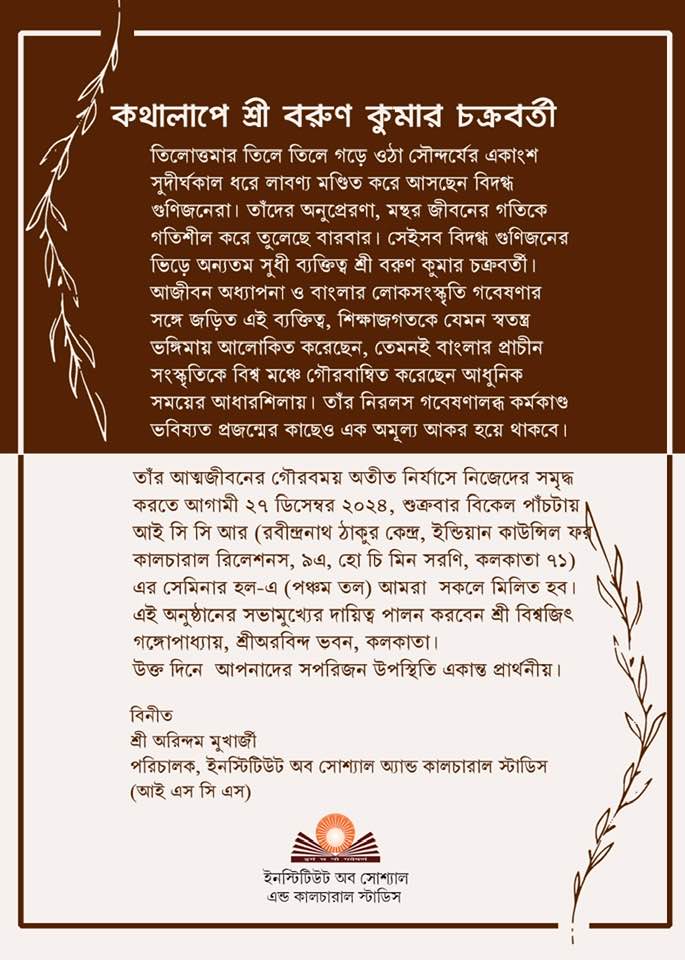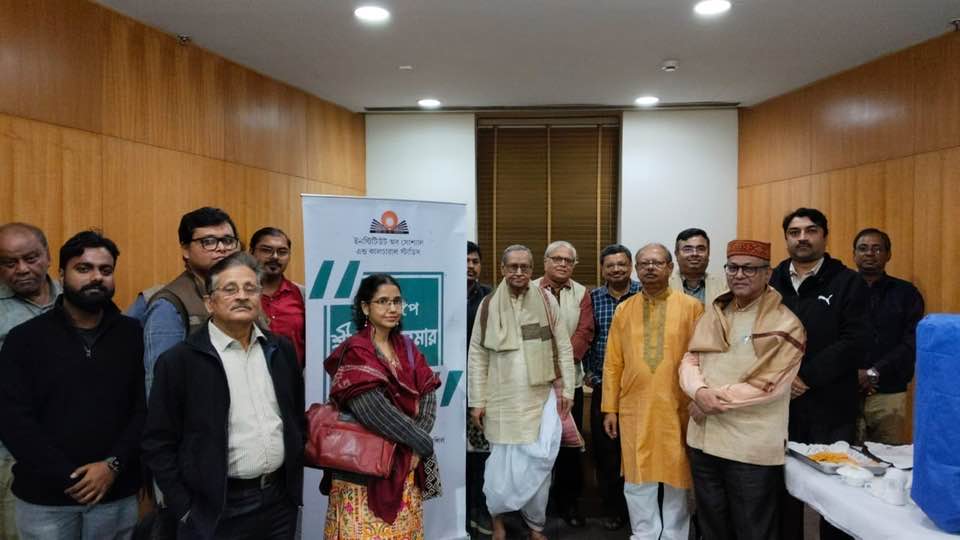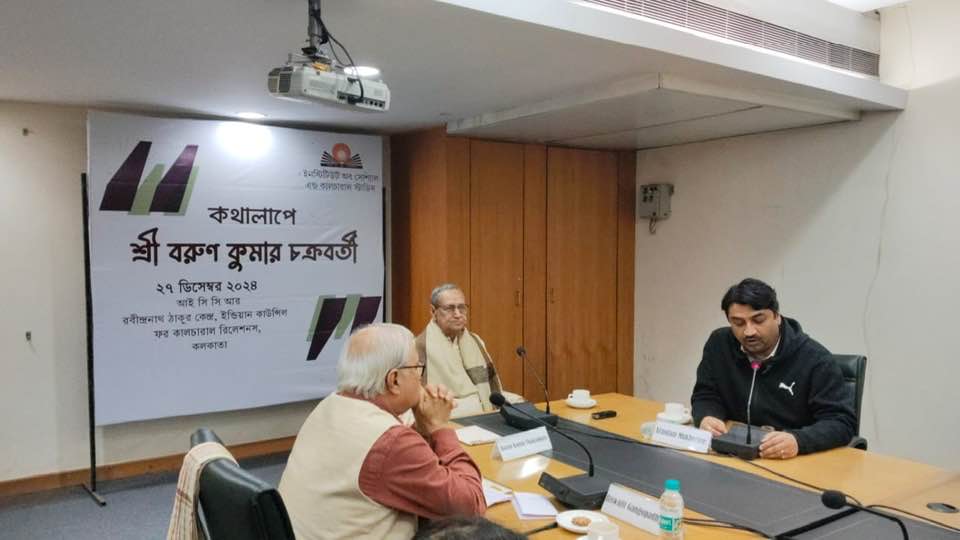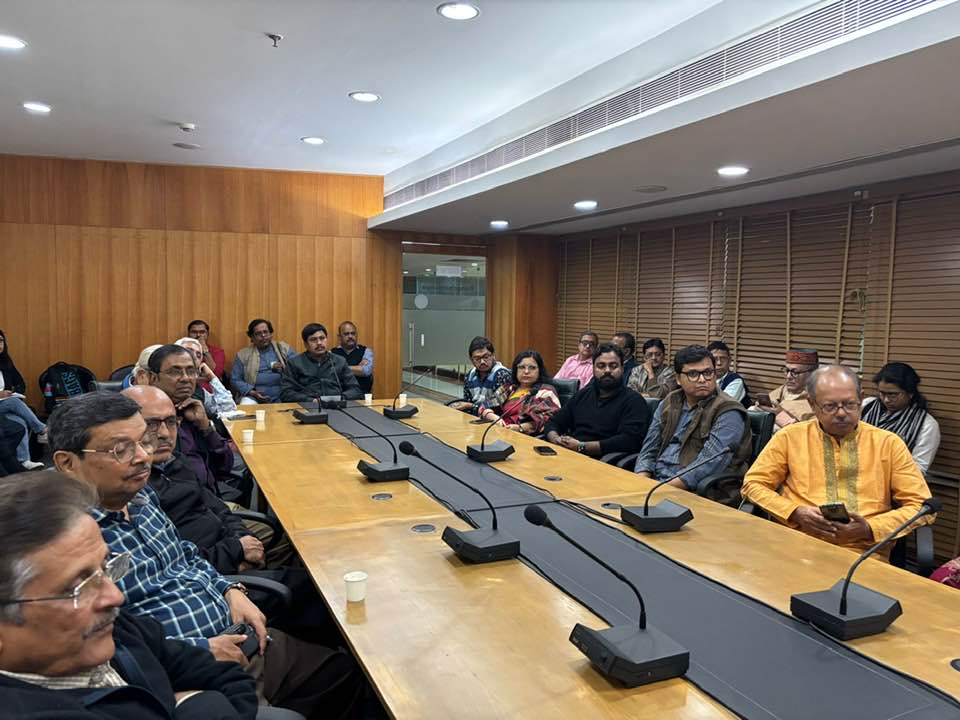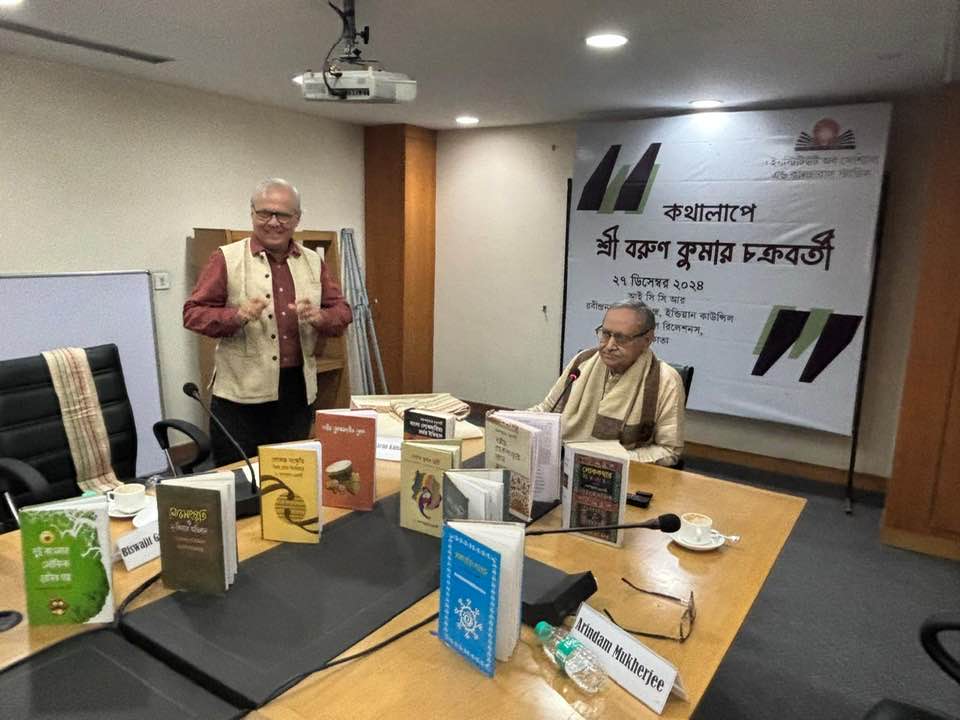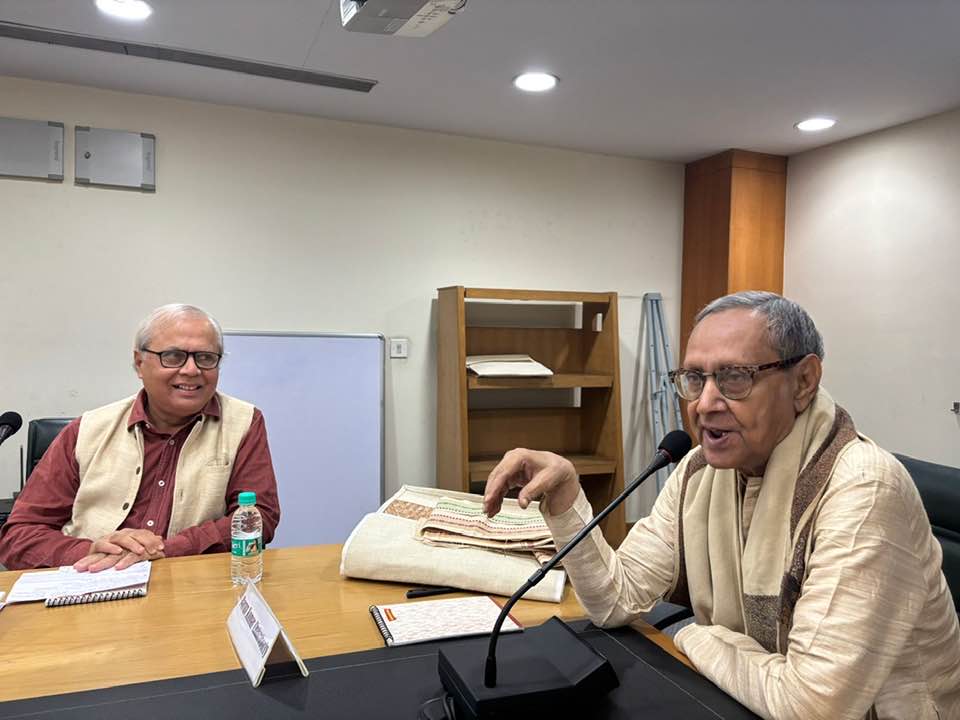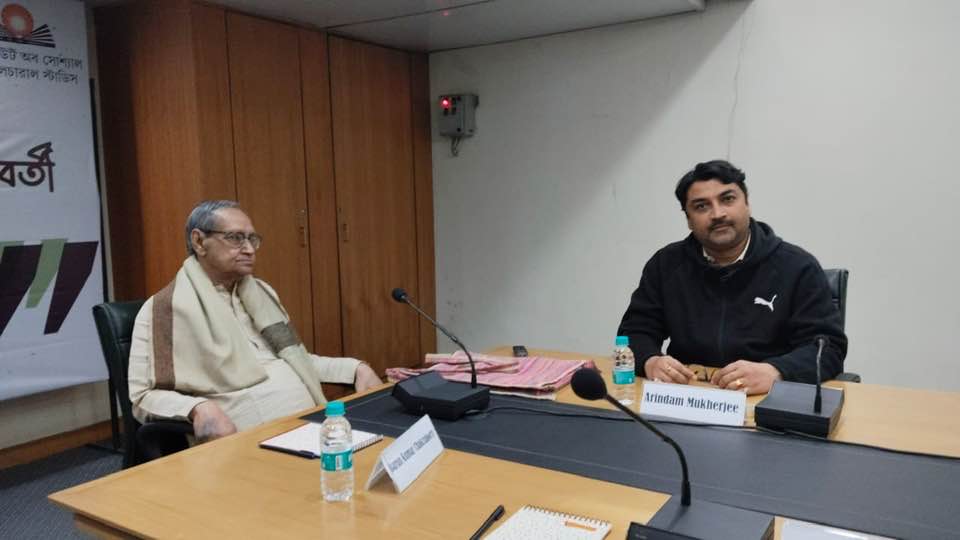An interaction with Prof. Barun Kumar Chakraborty
The Sudhi Sangam-10 event took place on December 27, 2024 at the Indian Council for Cultural Relations (ICCR), Kolkata.
For several years, the Institute of Social and Cultural Studies has been organizing this event, featuring distinguished personalities from various fields in West Bengal.
Prof. Barun Kumar Chakraborty, a Professor Emeritus from the Folk Culture Department at Kalyani University, served as the special guest for the occasion. The programme was chaired by Shri Biswajit Gangopadhyay, Sri Aurobindo Bhavan, Kolkata, with the presence of Shri Arindam Mukherjee, the Director of the Institute of Social and Cultural Studies.
Dr. Chakraborty is a notable figure in the study of the folk culture of ancient Bengal and continues to explore various facets of the folk culture of undivided Bengal with a keen intellect at the age of 82. His contributions also extend to the history of Bengali literature, and he has also authored stories and novels in the Bengali language. His reputation as a researcher of folk culture extends beyond national boundaries.
His academic journey and profound dedication to the Bengali language resonate deeply with the essence of Bengali folk culture, which was a focal point of discussion during the event. He highlighted several significant issues, one of which is the modern education system’s tendency to overlook ancient folk culture and the foundational aspects of folk education. This neglect, he argued, fosters a disconnect between educators and students, thereby hindering the enhancement of educational quality when traditions are excluded. He stated, ‘I mean modernity, which gradually increases in popularity.’ In this regard, he referenced the works of Rabindranath Tagore, asserting that literature, culture, and folklore can remain relevant across centuries and millennia, thus embodying both classical and modern elements.
The inquiry emerges regarding the extent to which the integration of contemporary technology within Western culture and education has impacted the folk culture and society of Bengal. According to him it has been observed that, as a consequence of this technological advancement, individuals are increasingly abandoning the practice of hard work, which in turn affects educational outcomes. Furthermore, it is suggested that research topics should stem from genuine personal emotional needs. However, in the present current scenario, obtaining a PhD has become a significant requirement for career advancement and financial success. Consequently, while numerous students engage in research, it often lacks substantial depth, with the motivation to explore more profoundly diminishing among the present generation.
Professor Barun Kumar Chakraborty has dedicated considerable effort to studying the folk culture of undivided Bengal. Nevertheless, due to historical circumstances, Bengal experienced partition. The rich ancient folk culture of East Bengal and Bangladesh is now overshadowed by various other cultural influences. In this context, Arindam Mukherjee, the director of the Institute of Social and Cultural Studies, posed a critical question to Professor Chakraborty, highlighting that while folk culture is a central theme for both Bengals, the current situation in Bangladesh raises concerns.
In response to the question, Dr. Barun Kumar Chakraborty stated that individuals who disrupt law and order in Bangladesh or contribute to the degradation of its ancient culture are not genuinely connected to folk culture. He characterized them as either illiterate or uneducated, asserting that those who truly engage with folk culture cannot be anti-human in any respect. He further elaborated that the practice of folk culture in Bangladesh has yet to be adequately institutionalized. While there are commendable folklore researchers in the country, they have not succeeded in nurturing a new generation of proficient researchers. Additionally, he noted that while foundational work in folk culture research has been undertaken in Bangladesh, comprehensive analysis remains lacking. In contrast, significant advancements have been made in both compilation and analytical efforts in West Bengal and India. He emphasized that without a collaborative study of the folk cultures of both Bengals, the research will remain incomplete. Present at the event were some of Dr. Chakraborty’s students, including Shri Biswajit Gangopadhyay, who chaired the programme and is himself a former student of Dr. Chakraborty.




